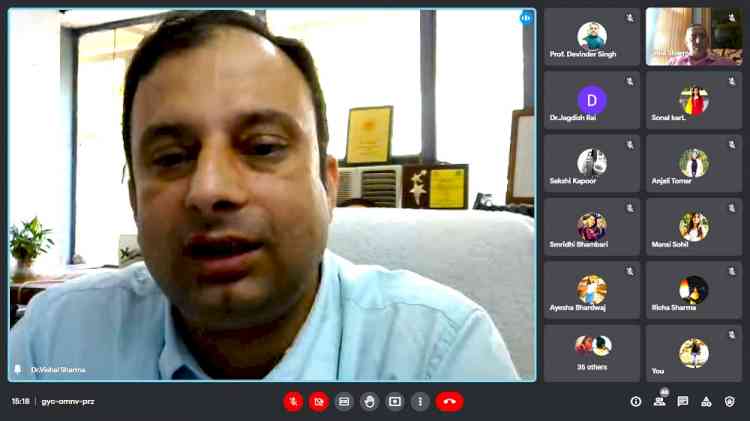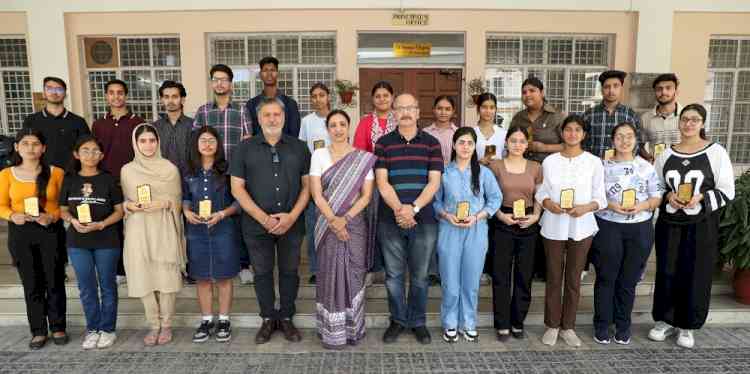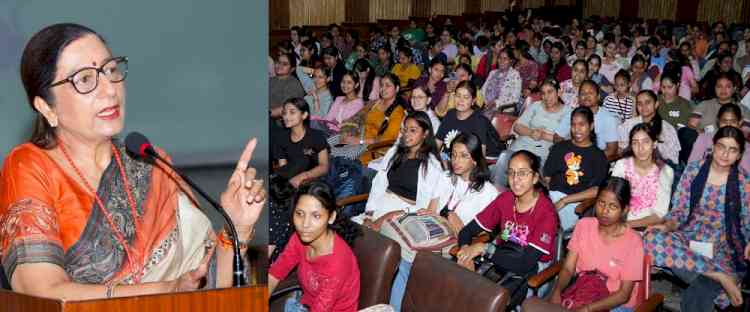PU’s Institute of Forensic Science and Criminology conducted National webinar on Crime to Criminals

Chandigarh, March 29, 2022: The Institute of Forensic Science and Criminology, Panjab University, Chandigarh organized a special lecture in the ongoing National webinar lecture series 2021-22 on ‘‘Crime to criminal(s)’’. The webinar was hosted by Dr. Vishal Sharma (Chairperson at the Institute of Forensic Science and Criminology) in which he greeted everyone and said that the technology advancement has led the world to another level, so the crime has also become much tech-oriented. The NCRB records 2020 states that the rates of crimes as well as the types of crimes prevailing in the country have become unusual. The criminals have become smart. As much as criminals are adopting for crimes, law enforcement agencies are also updating their investigation techniques.
The distinguished Chief Guest of the webinar, Prof. Devinder Singh, Chairperson, Department of Laws, Panjab University, Chandigarh in his inaugural address said that Science and Technology has a major role to play in any type of investigation. The body of criminal is also an important subject in the investigation with the introduction of polygraph test and narcoanalysis. He added that forensics play an important role in the criminal justice system and its use should be widened. He even asked for organizing various collaborative courses with Law department to train the students intellectually.
The speaker of the webinar, Dr. Arun Sharma, Former Director, Forensic Services, Himachal Pradesh, in his keynote address stated that forensic science is a growing field and is essential to the field of law because it involves the use of science to solve an investigation. The examination of sequence of event and scene of crime are two important aspects in criminal investigation. He shared various cases that have been solved by him with the challenges involved and techniques used to solve them. He concluded his lecture by saying that scientific dealing with crime scene is important to conclude any finding.


 cityairnews
cityairnews 










